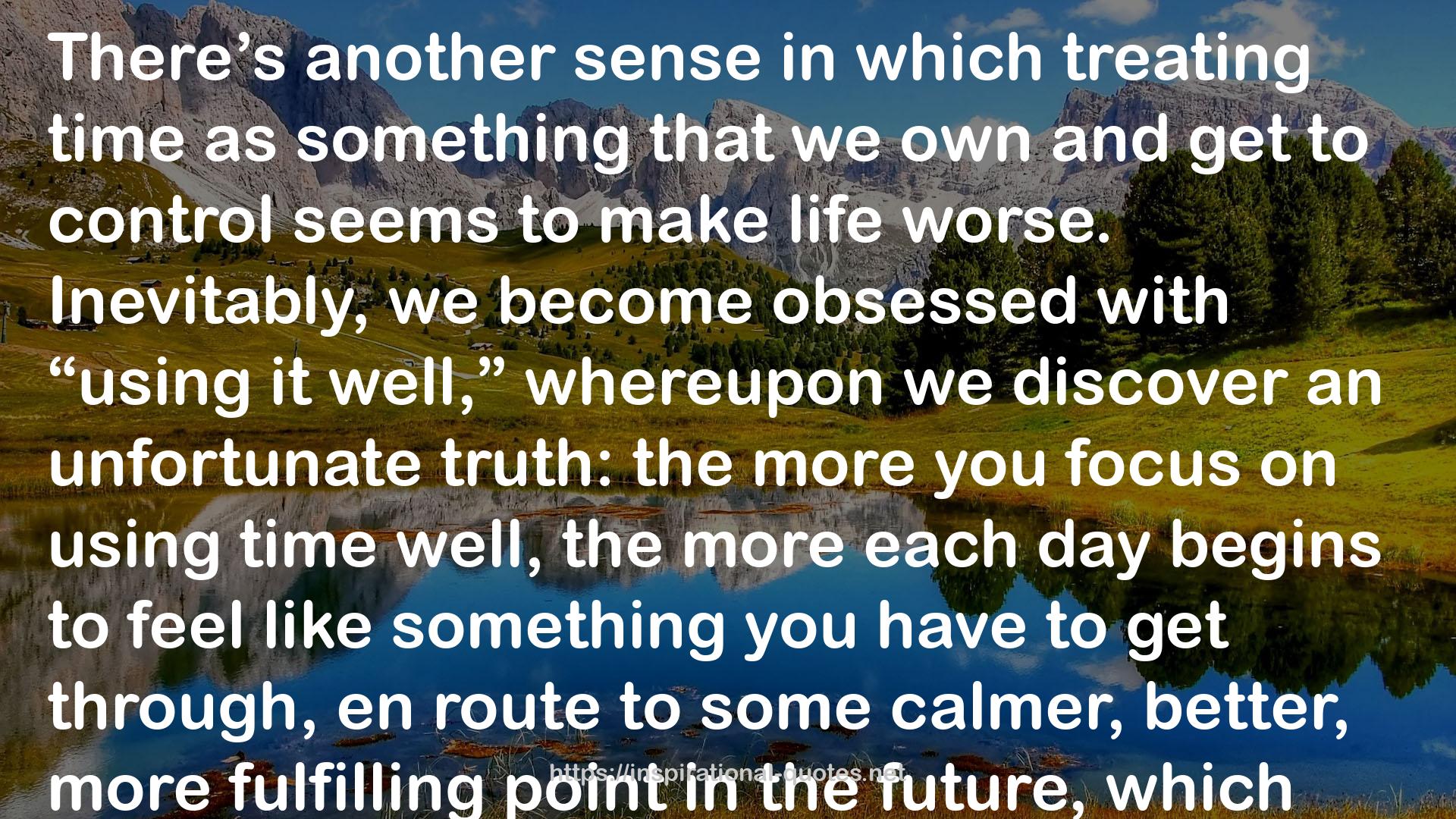" There’s another sense in which treating time as something that we own and get to control seems to make life worse. Inevitably, we become obsessed with “using it well,” whereupon we discover an unfortunate truth: the more you focus on using time well, the more each day begins to feel like something you have to get through, en route to some calmer, better, more fulfilling point in the future, which never actually arrives. The problem is one of instrumentalization. To use time, by definition, is to treat it instrumentally, as a means to an end, and of course we do this every day: you don’t boil the kettle out of a love of boiling kettles, or put your socks in the washing machine out of a love for operating washing machines, but because you want a cup of coffee or clean socks. Yet it turns out to be perilously easy to overinvest in this instrumental relationship to time—to focus exclusively on where you’re headed, at the expense of focusing on where you are—with the result that you find yourself living mentally in the future, locating the “real” value of your life at some time that you haven’t yet reached, and never will. "
― Oliver Burkeman , Four Thousand Weeks: Time Management for Mortals
